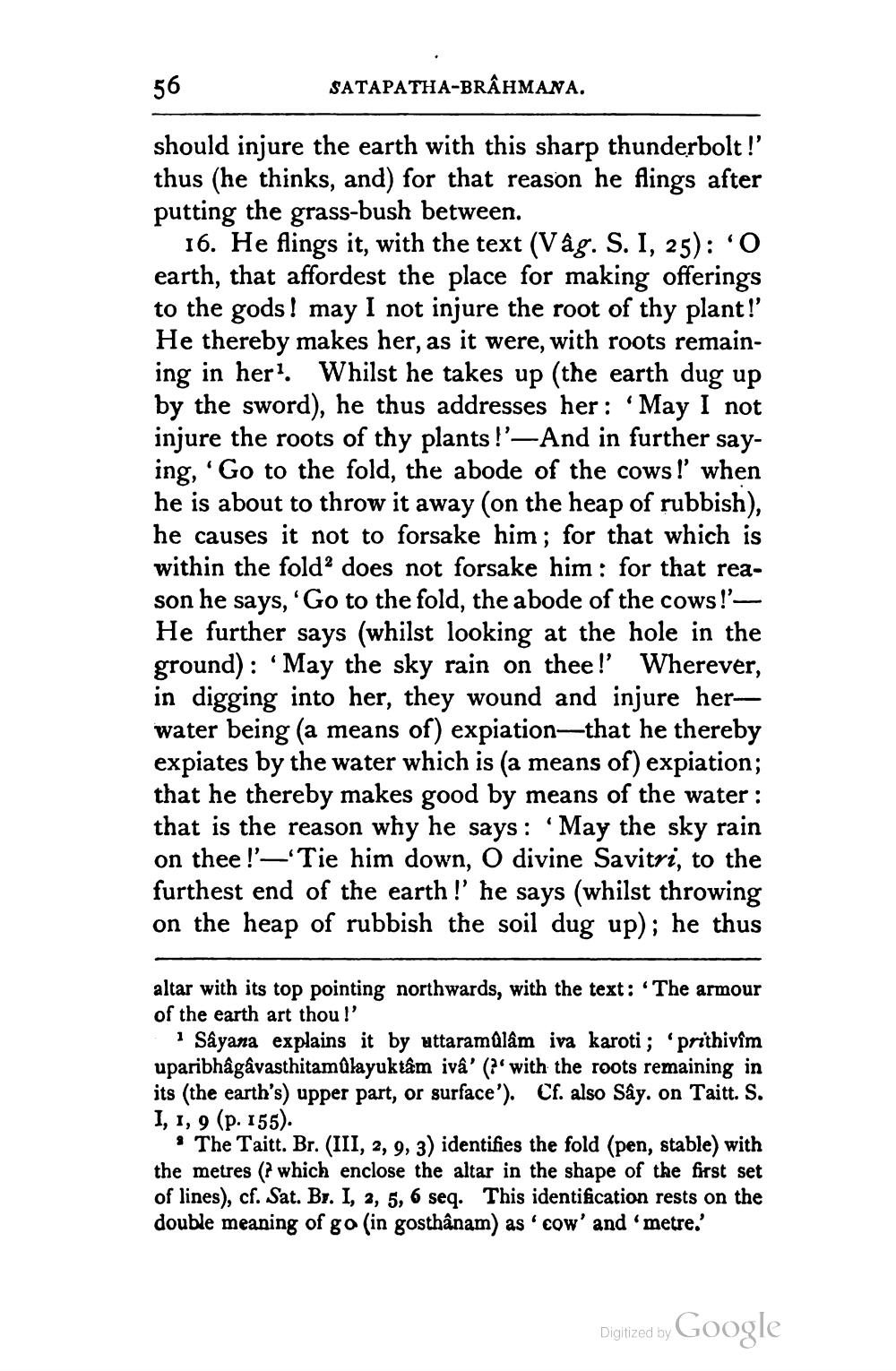________________
56
SATAPATHA-BRAHMANA.
should injure the earth with this sharp thunderbolt!' thus (he thinks, and) for that reason he fings after putting the grass-bush between.
16. He flings it, with the text (Våg. S. I, 25): 'O earth, that affordest the place for making offerings to the gods! may I not injure the root of thy plant!' He thereby makes her, as it were, with roots remaining in her? Whilst he takes up (the earth dug up by the sword), he thus addresses her: 'May I not injure the roots of thy plants !'-And in further saying, 'Go to the fold, the abode of the cows!' when he is about to throw it away (on the heap of rubbish), he causes it not to forsake him ; for that which is within the fold” does not forsake him : for that reason he says, 'Go to the fold, the abode of the cows!' - He further says (whilst looking at the hole in the ground): "May the sky rain on thee!' Wherever, in digging into her, they wound and injure her-- water being (a means of) expiation—that he thereby expiates by the water which is (a means of) expiation; that he thereby makes good by means of the water : that is the reason why he says : ‘May the sky rain on thee !'—'Tie him down, O divine Savitri, to the furthest end of the earth!' he says (whilst throwing on the heap of rubbish the soil dug up); he thus
altar with its top pointing northwards, with the text: 'The armour of the earth art thou !'
1 Sâyana explains it by uttaramQlâm iva karoti ; 'prithivim uparibhagavasthitamülayuktam iva' (?' with the roots remaining in its (the earth's) upper part, or surface'). Cf. also Sây. on Taitt. S. 1, 1, 9 (p. 155).
• The Taitt. Br. (III, 2, 9, 3) identifies the fold (pen, stable) with the metres (which enclose the altar in the shape of the first set of lines), cf. Sat. Br. I, 2, 5, 6 seq. This identification rests on the double meaning of go (in gosthânam) as cow' and 'metre.'
Digitized by Google




